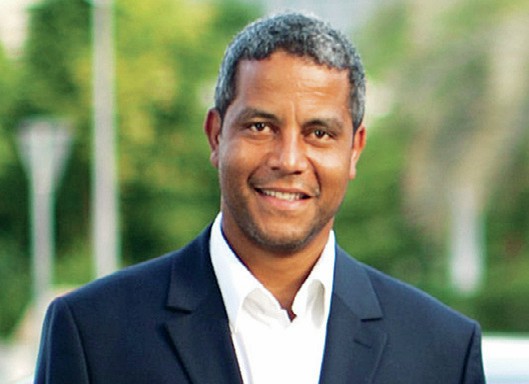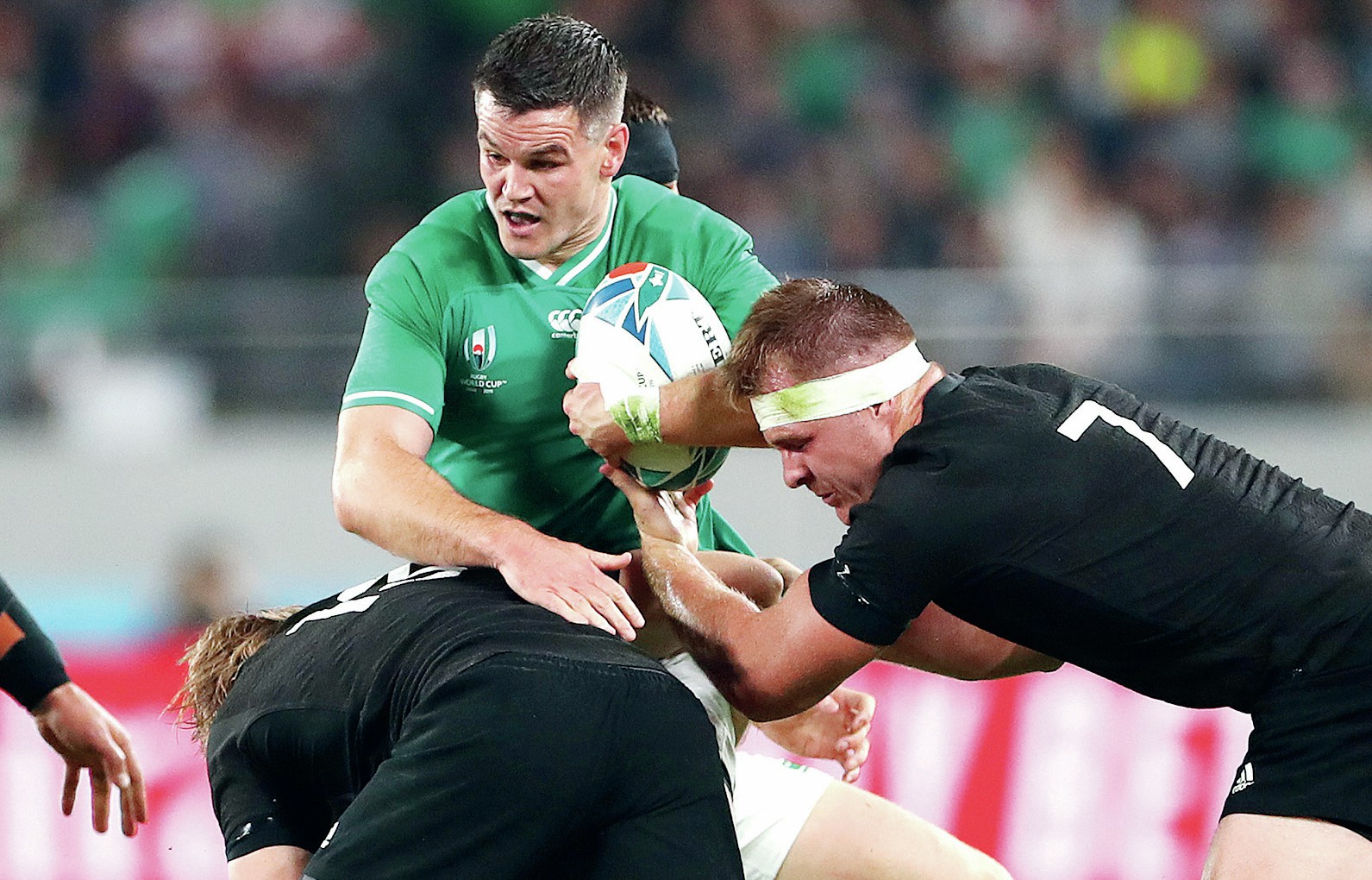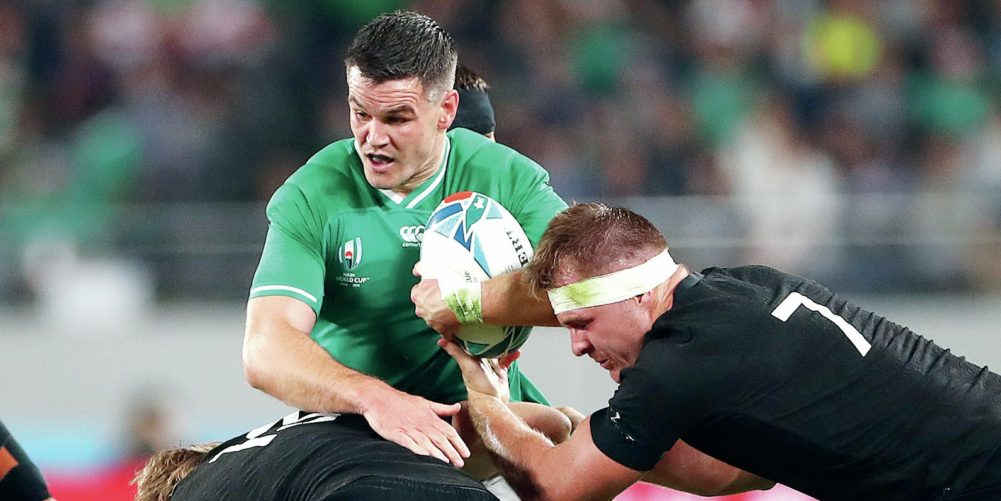OUTSPOKEN AND UNMISSABLE… EVERY WEEK

We are year out from the start of the 2023 World Cup in France, and we know that if the rankings had been done nearer to the tournament you would not have one half of the draw featuring the top four sides in the world.
However, the requirements of recces for team preparations well before the tournament takes place have taken precedent, and it has resulted not only in Ireland and France, the teams rated one and two in the world, being in one half of the quarter-final draw, but being joined there by the reigning world champions South Africa, and the other treble-winning World Cup nation, New Zealand.
It means that of those four best teams only two will feature in the semi-finals. It also means that because New Zealand and South Africa will only improve over the next 12 months, that Ireland will have to hold onto the world class standards they have achieved over the last year. To do that a lot will depend on Johnny Sexton remaining in good shape, even though Joey Carbery is also a very good fly-half.
There were mixed messages from the other home unions on their summer tours. Despite England beating Australia in their series Down Under, they were not firing on all cylinders, and they still have big improvements to make.
Wales were valiant in defeat in South Africa, but the disappointment of the loss to Italy in Cardiff in the Six Nations still lingers. Scotland were edged out narrowly by the Pumas in their series in Argentina, but coach Gregor Townsend's biggest concern will be they still cannot rise to the challenge of winning three games in the Six Nations.
At the moment the potential leftfield winners from the easier half of the tournament draw would be either England or Australia. However, even though France face a much more difficult route, the host nation have so much power and skill up front, and speed and elusiveness in the backs – as well as making effective use of their bench – that they will be very hard to beat.
French improvement has been building for some time with their leading Top 14 clubs doing well in Europe and the France U20s producing two world champion sides in the last four years. It has helped to give them the belief that they can be the best in the southern hemisphere, especially after the addition of a few gnarly Top 14 veterans alongside Antoine Dupont and company.
Having beaten New Zealand last autumn, and then secured a Six Nations Grand Slam, France know that if they go well again in this autumn series they will stay as favourites.
Most teams have lots of room to improve, but the only exception for me is Ireland. They will have to go a very long way to improve on what they did in New Zealand – and that means that their problem going into the World Cup will be mainly mental.
A psychological challenge can weigh heavily, particularly going into a tournament in which the Irish have never made the semifinals – but going to New Zealand to win a series, as Ireland have done, should offset that.

New Zealand do not have the quality of players they had in 2011 and 2015, and others have caught up with them. That's part of the reason why we are seeing these really competitive games and unpredictable results at international level. But the All Blacks have also shown in the Rugby Championship that they retain the ability to play with great intensity and that their skill levels are still a bit above the rest.
That is why they were able to cling onto the Bledisloe Cup in Melbourne on Thursday, although Australia got very close. Historically the Wallabies have done well in World Cups, and with such a favourable tournament draw they cannot be discounted.
If South Africa use their backs more often than they sometimes do, then, with runners of the calibre of Damian de Allende, Lukhanyo Am, Makazole Mapimpi, Cheslin Kolbe, Damian Willemse and a quality 9-10 partnership in Faf de Klerk and Handre Pollard, who has a better backline?
The Springboks are an all-court side. They can play rough and tough – and they mainly choose to do that – but if they cut loose they can match France, and anyone else.
Argentina have beaten the All Blacks recently, and been thumped by them. The Pumas can be very dangerous in a single Test, but I am not sure that they can produce the three big, back-to-back knockout victories in the space of two weeks which are required to win a World Cup. I am not sure that Argentina have the depth of Test players to do it.
Throwing forward to this season, England have a tough series of games at home in the autumn, and then face a Six Nations challenge of having to beat Ireland and Wales away. If they were to beat either the Irish in Dublin or France at Twickenham, that's full metal jacket, and it would give them belief.
Scotland have to find a higher level of consistency, while Wales cannot get any lower than they did in the last Six Nations – although coach Wayne Pivac and captain Dan Biggar will both believe that they have a game in them to challenge for the title.
However, we saw how much being at home boosted Japan in 2019, and with France being at home in 2023 most rugby people will consider them to be favourites. The difficulties for everybody beating everybody else recently is that you cannot pick a winner with any real confidence.
It should be a great tournament, but there is a niggling feeling that this autumn the Southern Hemisphere will be favourites when England play New Zealand at Twickenham and Wales play them in Cardiff. The other side of the coin is that when Ireland face South Africa in Dublin, and then France meet them in Paris, you'd fancy the Northern Hemisphere – and it would be the same if they were playing New Zealand.
Could a Northern Hemisphere team win the World Cup if it was played now? On form, France and Ireland could undoubtedly follow in England's 2003 footsteps. What they must do is make sure nothing changes that over the course of this season.



























